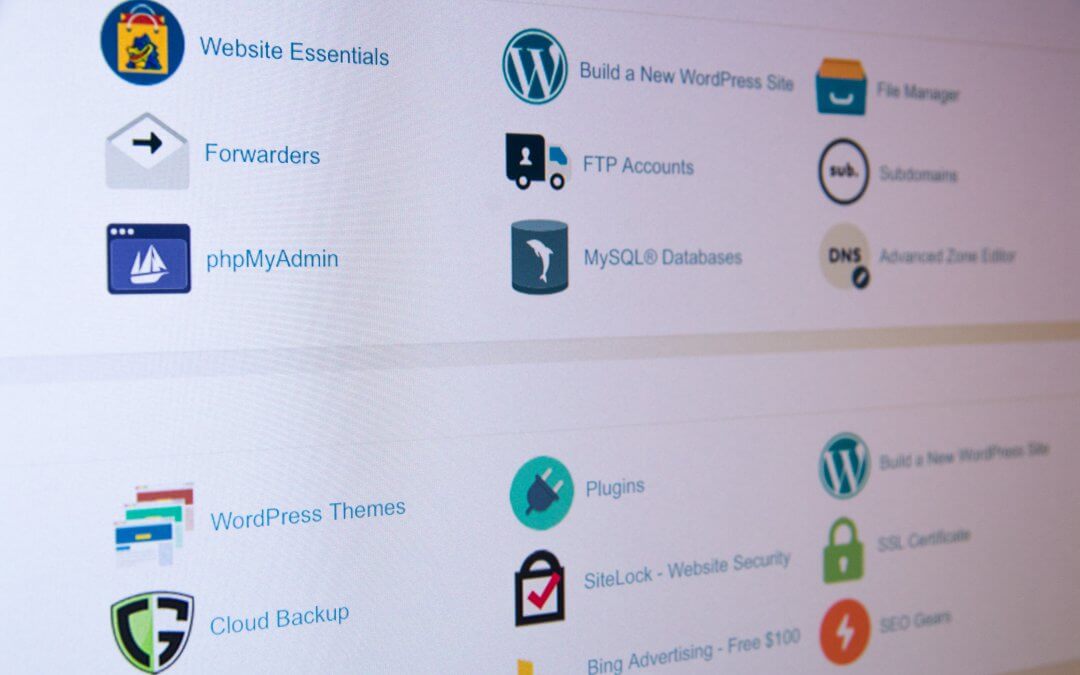
by iNode Cloud | Sep 24, 2020 | Blog, Hosting
In today’s day and age, data is considered to be one of the most important resources that a business needs to have. Whether you’re a restaurant chain operating a few establishments or a pharmaceutical laboratory working with scientists across the country, you need to make your data available as soon as you have it. To accomplish this, companies need to understand the advantages of going for cloud services over on-site hosting. That being said, no two cloud solutions are equal. Among the most well-known providers is Amazon Web Services, which currently has the majority market share at 32.4% of the cloud computing market share as of February 2020. Following it is Microsoft Azure at 5.3%, with Google Cloud and Alibaba Cloud trailing at 1.8% and 1.6%, respectively. Safe to say, if you are going for cloud hosting, the best choice is to go with AWS. Here are four advantages of going for AWS cloud solutions over on-site hosting solutions. 1. Costs The most obvious advantage of going for cloud hosting is not having to shoulder the total cost of ownership. Going for on-site hosting means that aside from the cost of acquiring the hardware and software, there are a lot of other costs associated with putting up and maintaining your own server. To put up your own server, you’ll have to pay for housing, energy, staffing, and maintenance costs. Only the first one isn’t a recurring cost—meaning it’s a continual investment just to keep it up and running. Before you can get your own server online, you’ll first need to build a facility that will house your data centre....

by iNode Cloud | May 19, 2020 | Blog, Hosting
cPanel is a tool that enables you to manage your entire web hosting account, which is perfect for business owners who tend to manage one or multiple accounts. They have over 3 million customers and 889,970 live websites worldwide. It’s the fifth most popular content management system, but it provides more than just that. It enables you to administer your entire server directly from your web browser, which includes email address set up, domain name configuration, and managing content. To know more about the cPanel, below is a brief discussion of its nature, along with its benefits. What is cPanel? As mentioned, cPanel works as a control panel that allows you easy access to managing your hosting account. It does not manage your billing preferences, however, and leans towards the technical aspects of managing your website. As you log into your control panel, you come across a graphical user interface that allows you to manage your website. Here, you’re allowed to make changes to the following items: Email: Through the cPanel, you will be able to create a new email account, change passwords, manage your email, and much more. Domains: Your primary domain pertains to the domain your cPanel account is configured with. Should the need arise, you have the option to add more domains like an Addon Domain, Alias Domains, and a Subdomain. File management: Through the cPanel, you will be able to access your files remotely. It also allows a File Manager to create, delete, or modify your files directly on the server. Database Management: Through this aspect, you’ll be able to manage database users, passwords, and...

by iNode Cloud | Jul 3, 2017 | Hosting
Image Source: Wikimedia.org Drupal is a big player in the content management system (CMS) market and it only lags behind WordPress and Joomla in terms of popularity. Some of the most famous websites in the world such as the White House website run on Drupal, and Drupal is widely considered to be the most powerful CMS software in the world. Drupal is incredibly comprehensive as it has a very specific programming environment. It is also an open source CMS. In fairness, Drupal is not really a CMS in the conventional sense. It is essentially a framework that can be used to develop a CMS, and anything that the user seeks to create. The available tools are incredible when it comes to managing and structuring content. Drupal has advanced functionality With Drupal, you can build a far superior site than you could ever hope to build on WordPress or Joomla. Drupal pages typically load more quickly and it is less resource intensive than its main competitors. Out of the box, it is easily the most powerful CMS, and it comes with features such as graphics modification, advanced menu management, and polls management. Drupal is ideal for any type of content such as videos, podcasts, statistics, or plain text. You need to know HTML/CSS to work Drupal In order to make effective use of Drupal, you will need to have at least basic knowledge of PHP, CSS, HTML, and other common languages. Expertise is a boon but not a necessity as you need to be able to identify problems with the code and troubleshoot any errors that may occur. If you...

by iNode Cloud | Mar 2, 2017 | Hosting
One of the most important aspects of website creation lies in the selection of the web host. The right web hosting company should be able to ensure that your site remains accessible and secure at all instances in time. Most web hosts offer unlimited disk space, email, and bandwidth nowadays so this is not as big a concern as it used to be. Some of the factors you need to consider include phone support, Malware protection, Google tools, scalability options, price, special software, and the amount of web volume. Price is not the most important issue Do not opt for a hosting service simply because of its service as the wrong host could cost you far more in the long-term in terms of security and traffic issues. This is especially true for a new business when it attractive to pick out the cheapest option. Factors such as server speed are far more important than price. Pick your web host based on the power you think you need for your website. Server reliability Nothing is more important than having a responsive website that runs 24/7 with as little downtime as possible. The web host needs to possess a powerful network of server connections. This is why you need to select a host with an excellent uptime score. We recommend that prospective website owners pick a host with an uptime score of above 99% for maximum reliability. You can also track your prospective host with server monitor tools. Understand the type of hosting you need Website owners need to choose a hosting option based on the amount of traffic they expect...

by iNode Cloud | Jan 20, 2017 | Hosting
Cloud hosting basically involves hosting your traffic on virtual servers which run on an interconnected cloud computing environment. Cloud servers have rapidly grown in popularity in recent times due to their innumerable benefits. No pesky physical servers! You do not need to rely on a physical, dedicated machine to handle your traffic as cloud hosting offers a far higher degree of security. Cloud hosting is shared by multiple interconnected serves that allows you to easily integrate extra servers without spending more on dedicated hosting services. There is not single point of failure with cloud. Massive scalability Cloud hosting offers a near unprecedented level of scalability, and you are guaranteed more server resources as and when you need them as long you purchase such plans. It is much easier to add disk space, memory, and computing power to a cloud environment. This is true for private clouds as well and ensure that your site will not crash if there is a sudden, unpredictable surge of activity on your site. Cost benefits In cloud, you are paying for exactly how much space you are using, and as you scale up, this amount will increase based on your storage requirements. Hence, you are basically not paying for any wasted space that you may not be using as is the case with physical servers, where you a fixed amount for a standard amount of space. Cloud environments are far more economically efficient and there is no redundant data storage. Stability In cloud, everything is interconnected, but a software problem in another environment cannot affect your environment and vice versa. If another uses overload...

by iNode Cloud | Dec 23, 2015 | Articles, Blog, Hosting, SEO, Technical
We all know and use domain names to find the websites we want to go to. They are the text versions (www.inodecloud.com) of the Internet Protocol addresses (IP) that locate the content we want to find. The concept is pretty simple – domain name systems (DNS) are registries that link textual domain names to numerical IP addresses like a phone book – but DNS can be applied in ways that make websites accessible in ways that take technical and regional differences into account. Before we move on to application of DNS you should know a few things about how they work. There are several factors like aliases (CNAME), reverse DNS lookups and zone based registration that make DNS protocols powerful tools for consumers and providers. DNS Zone Authority Zone authority is the system that Domains use to delegate space to subdomains that are found at the same location (IP address). Your IP address is tailored to your domain name and changes as new pages are added to your website. For example, individual IP addresses begin at 0.0.0 (root host which can be your computer or your ISP’s root server) and grow as new locations are added to server space. A zone is a portion of your IP address that is reserved for subdomains that require autonomy. CNAME Aliases are used in conjunction with search engine optimization. They are additional domain names that link to the same address. Aliases can serve several purposes like accounting for misspelled domain names and increasing your search engine ranking. Platforms like Interworks come with tools for adding aliases to your domain. Otherwise you could...







